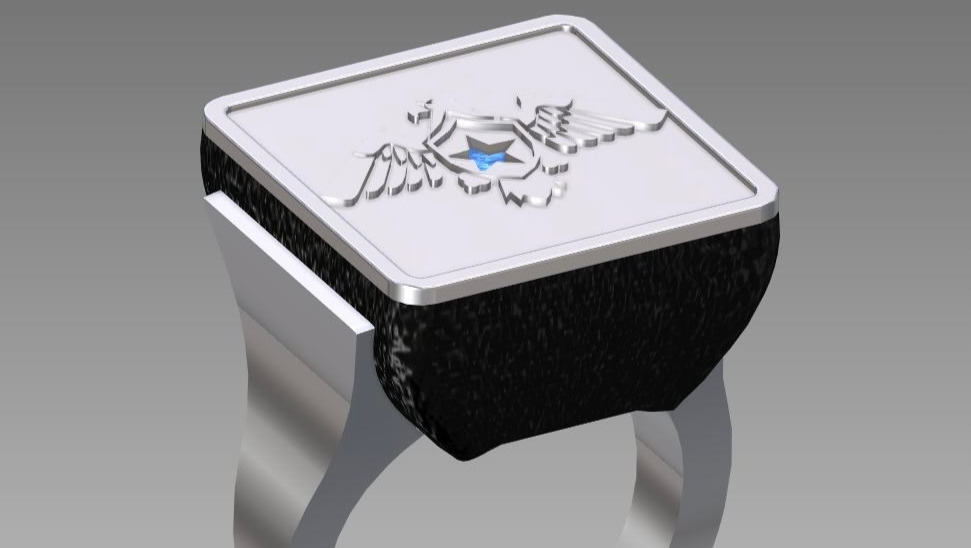
Please help us to prevent Veteran Suicides
Donation protected

Hi, my name is Tony. In the spring of 2021, we suddenly and without warning lost one of the brightest lights in the 2-Dooz family—our medical advisor, Dr. Sofia Jalilie. Dazed, confused and in need of healing, we decided to make something positive from our unfathomably painful shared experience. The idea for the Resilience Campaign and Resilience Challenge 2022 was born. In Sofia’s memory, I am raising $60,000 to cover the equipment cost and pay for 100 military veterans to participate in the 2-Dooz Resilience Suicide Prevention study.
Sofia’s medical practice put her on the front line in the war against COVID; where she and other essential workers bore the brunt of the pandemic’s attack, including amplified stress, which the Centers for Disease Control (CDC) calls a widespread secondary health effect of the virus. Sofia apparently and inexplicably took her own life in what we imagine was a moment of weakness. Her warmth and kind spirit were forever extinguished, but her commitment to service lives on in the Resilience Campaign.
Stress, Mental Health and Deaths of Despair
A pre-pandemic Gallup poll found that nearly eight in ten Americans admit to frequently or sometimes encountering stress in their daily lives. Per the CDC, we now know that pandemic amplified stress affects everyone. Furthermore, the pandemic has increased all induced symptoms of stress, including anxiety and depression, which are correlated with higher suicide risk.
For the calendar year 2020, the WellBeing Trust estimates that an additional 68,000 deaths of despair—deaths due to drugs, alcohol and suicide—were caused by the pandemic, establishing a definitive link between amplified chronic stress and increased suicidal ideation. The additional 68,000 deaths of despair are greater than the total number of people who died from breast cancer in the U.S. in the same timeframe and are on par with the total number of casualties our country suffered during the American Revolution.
While deaths from suicide and despair are on the rise across all demographics, research reveals that certain groups, inclusive of current and former members of our military, fare much worse. Per the 2019 VA’s Suicide Prevention Annual Report, veterans are more than 1.5 times more likely to die from suicide than members of the general U.S. population. Because of this, we decided that the initial focus of our suicide prevention research should be on military veterans.

Resilience Suicide Prevention Study
Regarding suicide prevention, we define resilience as the ability not to choose a permanent solution for a temporary problem. Resilience is what allows one to patiently persevere through a present episode of personal adversity. Resilience consists of the following steps: (1) self-awareness, (2) focused attention and (3) perseverance. Ironically, all three are also common in stress management. A crisis, of the magnitude which may lead to a death of despair, evokes a stress response. And suggests better managing stress could be a key to being more resilient.
Thus, the Resilience Suicide Prevention Study will examine how chronic stress punctuated by acute stress during a personal crisis can increase a military veteran’s risk of a death of despair. In the first stage of the study, which is targeted to start early next year (2023), the stress levels of veteran volunteers will be monitored and correlated to their assessed anxiety, depression, PTSD and suicide risk levels. Down the road, a follow-on study is expected to test how biofeedback-powered stress monitoring can be used as an adjunct tool within a highly personalized suicide prevention program. More specifically, biofeedback-based stress monitoring is expected to aid self-awareness—the first step of a resilience protocol.
Resilience Challenge 2022
The launch of the campaign coincides with Suicide Prevention Awareness Month. A donation of 600 dollars to our GoFundMe Resilience Challenge 2022 fundraiser will directly sponsor the participation of a single veteran in the Resilience Suicide Prevention Study, including veteran pay and study equipment. In addition to the $300 in pay, the supplied smart ring will remain the property of each sponsored veteran. Alternatively, challenge contributors can make cash donations in amounts as small as $10.00. The direct cash contributions will be pooled to purchase additional study equipment and to enable veteran remuneration.
100% of all sponsored devices and donated funds, excluding third-party fees, will go to the research effort. For our part, 2-Dooz has pledged to provide all of the research and analysis personnel required to perform the multiple-year Resilience Suicide Prevention Study.
Resilience Smart Ring

For the purposes of the study, 2-Dooz designed the Resilience™ Smart Ring. It is a limited-edition, veteran-themed prototype smart ring with an eagle emblem bearing a star-adorned shield, with cutouts to expose a color-changing layer that indicates a wearer’s stress level. Combined with Stress Monitoring App software, which runs on a smartphone, the Resilience Smart Ring independently and continuously monitors a wearer’s current stress levels. The ultimate goal is to create a suicide prevention solution that combines the Resilience Smart Ring and Stress Monitoring App software with the VA’s Virtual Hope Box, as part of a personalized zero-suicide plan.
Please join us by sponsoring one or more vets in this vital research. Please help us to discover preventative solutions which have the potential to save lives. We sincerely thank you for your support.
If you or someone you know is in crisis, please contact any of the following:
- National Suicide Prevention Lifeline at 1-800-273-8255 or text 988;
- Veteran Crisis Line at 1-800-273-8255 and press 1;
- Crisis Text Line by texting HOME to 741741;
- Text VET to 838255; or
- www.VeteransCrisisLine.net.
Organizer and beneficiary
Tony Clark
Organizer
Saratoga, CA
2-Dooz Inc.
Beneficiary